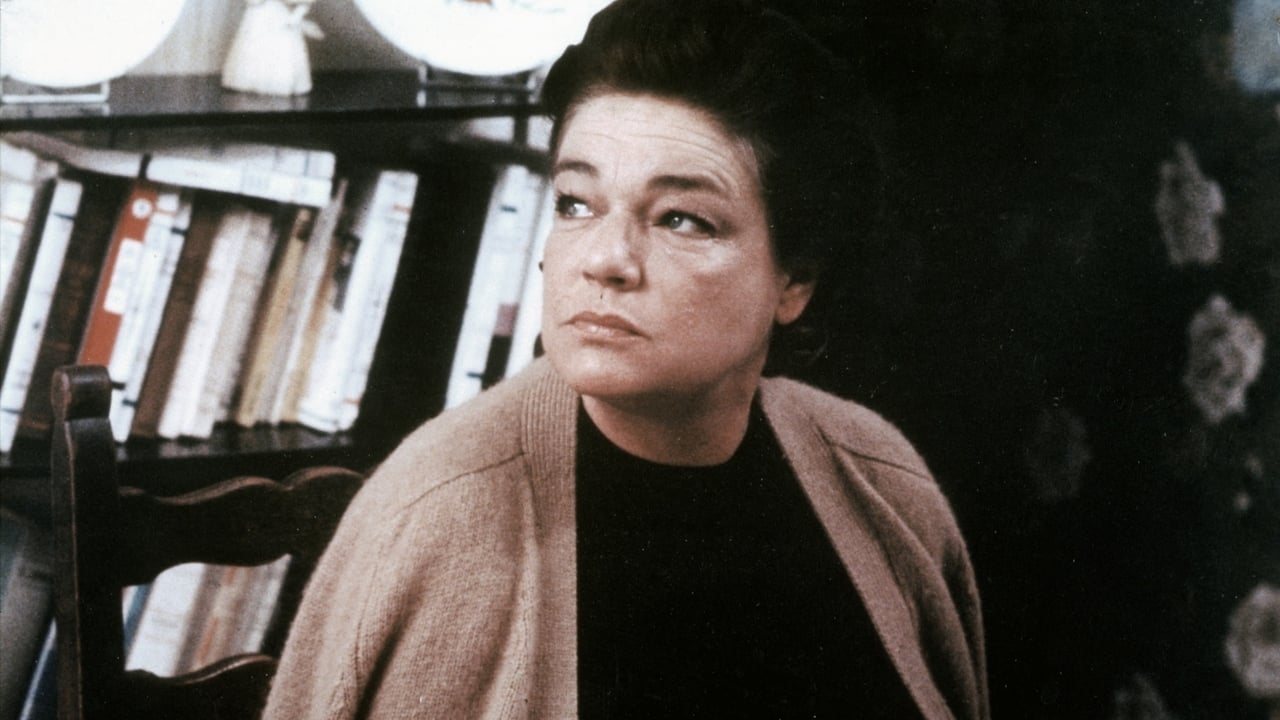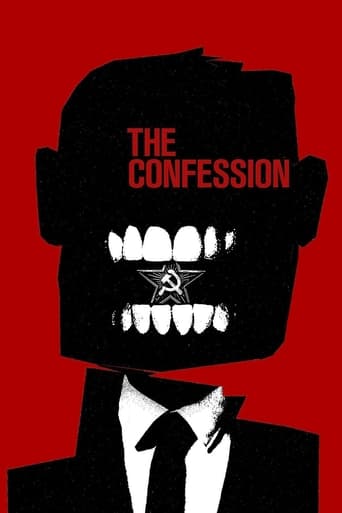

Excellent movie of what happens to you under a communistic system when it turns on you! Riveting, captivating true story of how high ranking leadership in the communist party are taking down by other higher ranking leaders and of course the system itself. The story doesn't waste much time in getting started so pay close attention as it takes off when you least expect it to. There will be flashbacks that come and go that may throw you off only slightly but if you listen and watch they are handled and put you on track for being taken prisoner yourself! That's right! The viewer is sucked in and kept there and as we watch the methods used in the USSR to break someone's power and will, we will be affected just by association. You have to remember its only a movie at times but real none the less. The lead actor does an excellent job as does the supporting players. Slowly, people who thought they were untouchable and above it all have their worlds shattered. Who can survive? How? That what awaits and more when you tune in here. I kept wondering when will all this subtle and highly sophisticated manipulation of people and facts will end and it doesn't disappoint you when we get there. Some people who had to travel into this system paid for the journey with their lives while others got to live to tell this story. Power corrupts, is an illusion and here you will learn is a form of control. This is where it becomes most effective. The people in this system obey it without question making you ask this question: Are they afraid they will be next? What happens is not a love driven dynamic as we watch it unfold. However we become very glad that we live in America. The USA is not perfect but keep me away from this system at all costs. Highly recommend a tasty drink and a sandwich which by the way is in this movie making you want one. Good sunflower seeds movie as well. Confess now or confess later but one thing is for sure. You will confess
... View MoreYes, thank you, Criterion, for putting up your films on a YouTube channel. I've always thought I'd love to see more of these legally available, even for a small fee (a $2.99 rental is very reasonable). I've had the chance to see Breathless (1960), Le samouraï (1967) and Lady Snowblood (1973) in the last three days. The Confession (1970) is my latest watch.The Confession is a political thriller and drama concerning Stalinism in Czechoslovakia. One imagines it would be difficult to get this film made in what was still a Communist country, so The Confession is a French film about a French-speaking Czechoslovakia. The story follows an undersecretary who is targeted for arrest and trial for treason, accused of Trotskyism and Titoism. Usually when I think of the purges, I think of Russia, so it is interesting to see it at work elsewhere in the Soviet Empire.The beginning especially works as a political thriller, with several of the Communist officials displaying what in many other circumstances would look like neurotic paranoia. When the two cars chase down our hero, it's a frightening moment. Much of what follows concerns the interrogation. We see the differences between Stalinism and Nazism blurred as Jews are expelled from the party and targeted. The audience can understand how reducing a man from undersecretary to a number can be demeaning, and can see how the repetitive nature of the interrogation can break a man down. This isn't entirely an easy film to watch, but it gets its message across in a style blending realism with small artistic touches. If more people can see this film, that can only be good.
... View MoreHere is a French-Italian film by a Greek filmmaker, Costa-Gavras. The film was released in 1970, and stars Yves Montand, with Simone Signoret costarring. The acting is impressive and all the performances are very solid. Stylistically, the film feels similar to Costa-Gavras's last film, "Z", utilizing polished camera-work in what is ultimately a classicist mode of filmmaking that was popular for many political films in the '60s through the mid-'70s, such as Schlondorff's "The Lost Honor of Katharina Blum". The cinematography looks quite good, and you would expect as much, given that it was done by the famous cinematographer of the French New Wave, Raoul Coutard, who worked on virtually all of Godard's and Truffaut's early films, as well as "Z". Like all the Costa-Gavras films I've seen, "The Confession" is a highly political film, delivered from a communist perspective. It's based on a novel by Artur London, in which London details his true-life experiences of being abducted, tortured, and put on trial by the Czechoslovakian government in the early '50s. The first misconception that must be dispelled is the idea that this is somehow an anti-communist film. It most certainly is not. Many viewers have noted the idea that, unlike "Z", which blatantly glorified communism, "The Confession" is much less politically biased, revealing the faults in both sides of the political spectrum. I have to completely disagree. "The Confession" is just as overtly pro-communist as "Z". Viewers should be reminded that it's not actually communism that Costa-Gavras is attacking in this film. Rather, he's attacking a specific regime in Czechoslovakia that corrupted communism and twisted it into a fascistic, totalitarian entity that, for Costa-Gavras, is not truly communism at all. Stalinism is the target of Costa-Gavras's criticism here, not communism. At no point in the film is the inherent virtue of communism ever brought into question. At most, the film provides a warning, like Donnersmarck's "The Lives of Others", regarding how quickly socialism can become fascism, and a reminder of the often thin line that separates the two. So, while Costa-Gavras is certainly making a critical commentary on the challenges of sustaining a true socialist state, he is never, at any point, questioning the notion that communism is intrinsically righteous and that it remains the ultimate goal toward which humanity and society should strive. That idea is axiomatic in "The Confession" just as it was in "Z". For Costa-Gavras, communism is still infallible, and therefore if something is flawed, then it must not be actual communism (in logic, I believe this is referred to as the "No true Scotsman" fallacy).In spite of this, I have a lot of respect for what Costa-Gavras did with this film. Yes, it's blindly faithful to the idea of communism, but it is at least willing to concede that communism is, indeed, corruptible. It may be infallible, in Costa-Gavras's eyes, but under the wrong conditions, it can be mutated into something that is fallible. This is sophistry, of course, but that's the point: With "The Confession", Costa-Gavras manages to condemn the corrupting of communism, and the form this corruption took, without ever condemning communism itself. It's a bit of a copout, admittedly, but it's much more than many staunch communists of the day were willing to acknowledge. Much like the protagonist of the film — that is to say, like Artur London himself — Costa-Gavras remains loyal to the idea of communism, in spite of everything he's seen in the events depicted in the film.So there really is nothing anti-communist here, anymore than it would be anti-Catholic to acknowledge the existence of the Inquisition. An anti-communist film would endeavor to challenge the merits of communism, to doubt its inherent worth. Nothing could be further from the reality of this film. Communism is accepted by Costa-Gavras as an innately righteous entity, and nothing in the film denies that idea. However, Costa-Gavras has at least had the courage to confront the reality that even socialism can make mistakes, and he seems to firmly believe that those mistakes need to be acknowledged and rectified, and not rejected and hidden away from the public eye. Sadly, many communists did not agree. They feared that the film would provide ammunition for anti-communists, and they saw it as an attack on the integrity of communism. They preferred, evidently, that the truth be buried, which is quite hypocritical, since it goes against the very principles of communism, and the idea that, as Antonio Gramsci said, telling the truth is a revolutionary act in itself. As a result, I appreciate Costa-Gavras's courage in making this film, as I do Artur London's in writing the novel that it's based on. It shows a genuine commitment to one's beliefs, which is something I can deeply respect, whether I share those beliefs or not.Politics aside, I think most viewers will find this film very entertaining. It tells an intriguing story, it's well acted, and it benefits from impressive direction on Costa-Gavras's part and characteristically high quality cinematography from Coutard. Stripping the film of its communist ideals, what we're left with is a film about an individual bearing the burden of human injustice, and ultimately suffering for maintaining blind loyalty to a cause. It was a loyalty that, when all was said and done, only traveled in one direction. In this way, the film carries thematic similarities to many of the chanbara (samurai) films that Japan churned out in the '60s. So I don't think the communist implications of the film should be much of a turnoff to even the most ardently anti-communist viewers. Other than an unfortunately propagandistic ending, Costa-Gavras makes it easy enough to set all of that aside and interpret the film on much broader terms, if the viewer is so inclined. RATING: 8.00 out of 10 stars
... View MoreCosta Gavras followed up his greatest critical and commercial success, "Z", with this initially confusing but ultimately illuminating political drama (which predates, and resembles more than a little, both "Papillon" and "Midnight Express"). Occasionally it can be just as exhausting for the viewer as it is for Yves Montand's character; Gavras reaches into a whole bag of cinematic tricks, but cannot quite camouflage the repetitive nature of the story; on the whole, however, "The Confession" is a powerful, sad, enraging experience. Although some viewers who still believe in the socialist ideals are bound to hate it for what it exposes, it's still the work of a genuine socialist who grieves over what became of Lenin's revolution in Stalin's (and his successors') hands. Or, as the young Czechs' graffiti on the wall in the final shot says, "Lenin, wake up! They've gone crazy". *** out of 4.
... View More